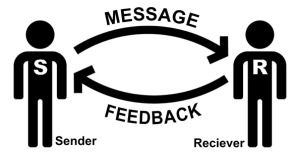"The belief that one's own vision of reality is the only reality is the most dangerous of illusions." Paul watzlawick
- Pick a good time. If you notice that the environment is tense or that you could easily get upset, it is better to allow a little time. If you are particularly irritable, it is advisable to use the mindfulness or mindfulness technique. You will also have to assess the emotional availability of the other person. A good way to test the waters and open a conversation is to ask: Can we talk? If the person says no, don't insist, ask again later or wait for them to come to you.
- It is important to respect the reality of the other and validate it. Validating does not mean agreeing. It means accepting and tolerating that the other person has a different experience and vision than you. Minimizing, ignoring, denying, or judging the other's emotions, feelings, and thoughts are forms of invalidation. It doesn't matter if it seems exaggerated or unreasonable to you or whatever criticism comes to mind. What counts is that for the other person it is real.

- If you are going to complain about something, refer to a particular behavior, not the entire personality of the other. Explain to that person how their behavior has had a negative effect on you. For example, instead of saying “you are selfish”, reformulate in more concrete terms and describe the behavior: “that you forget to ask me how my first day of work has gone and above all you have not worried about saving me a little of food, it makes me feel hurt and angry ”. When you are specific in your criticism, it is not only more tolerable for the other to listen (since you are not attacking their whole person), but it is also easier to change.
- Avoid “You always…” or “You never…” generalizations. When we feel misunderstood, little taken into account or we consider that a situation is unfair, we tend to use this type of criticism based on the dichotomy "all or nothing", as a desperate way to attract the attention of the other. However, it is not productive since "always" and "never" arouse a defensive attitude in the other and instead of creating a connection, it alienates the other.
- Try to formulate your messages starting with "I feel" instead of "You are." For example, instead of saying "You're a bad person," opt for "I feel hurt when you do this." In general, people find it difficult to apply this advice since it means showing themselves vulnerable to the other and many are scared of that. However, as in point 4, this type of accusatory comment, instead of facilitating dialogue and creating closeness, distances the other.
- Don't go as a fortune teller. Don't pretend to know what the other person is thinking or feeling. This is a form of invalidation. How about you ask better? 🙂
- Try to avoid polarizations in which only one is right and the other is guilty, one is the good and the other the bad. Remember that in a conflict there are always two people involved and that relational dynamics are not governed by the law of "cause-effect", but rather that the reactions of each one feed back in a circular way.
Voilà! I hope it has served you. If you have any questions or want to share your opinion or story, you can do so below. And even if your comment does not appear right away, don't worry, sometimes it takes a few hours to be approved.
[mashshare]

please help me do that homework if i beg you
please help me do my homework yes
please yesiiiiiiiiiiiiiiiiiiiiiiiiiiiiiiiiiii
rot
HELP ME YES
RANGES
YES RANGES